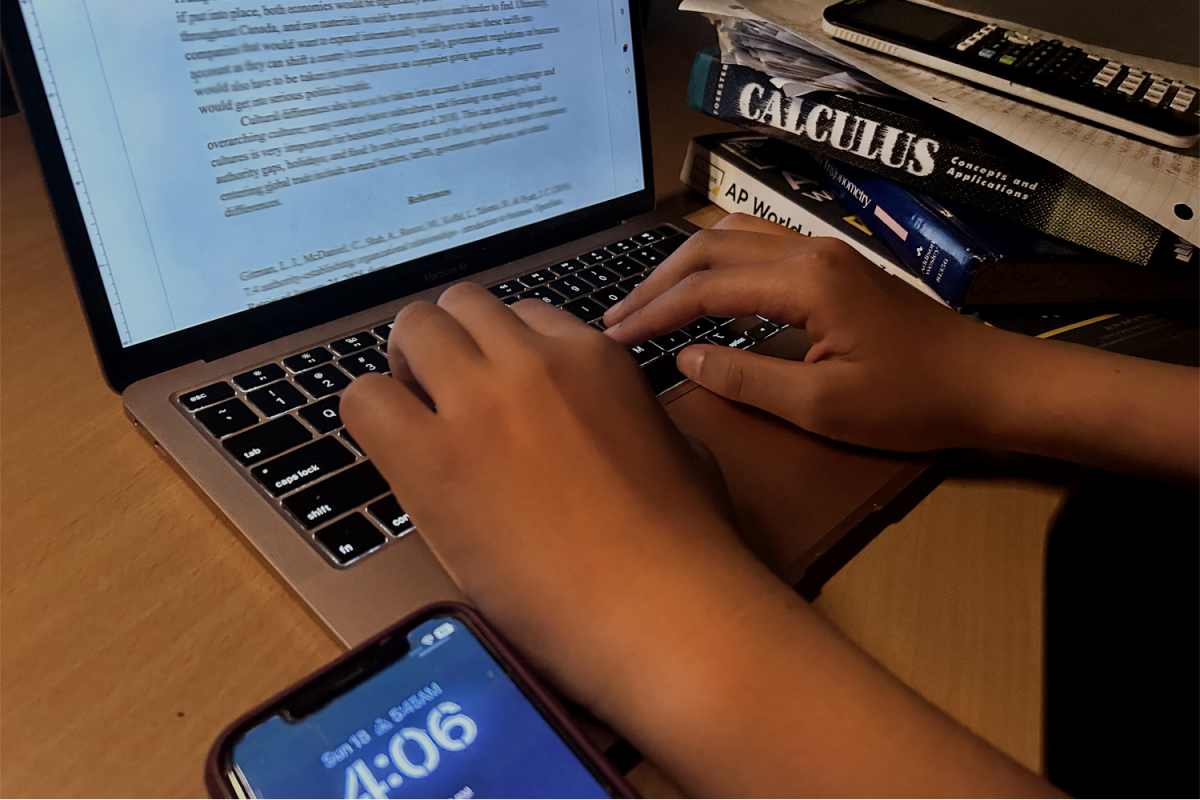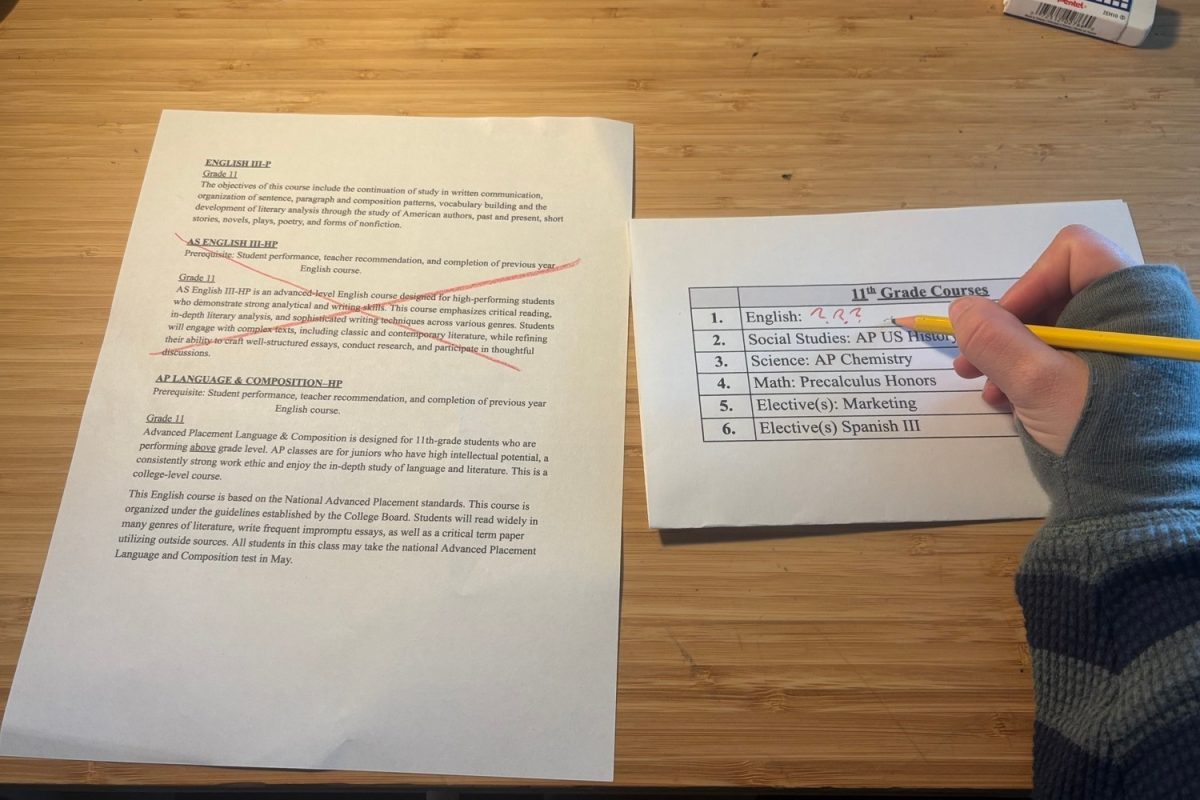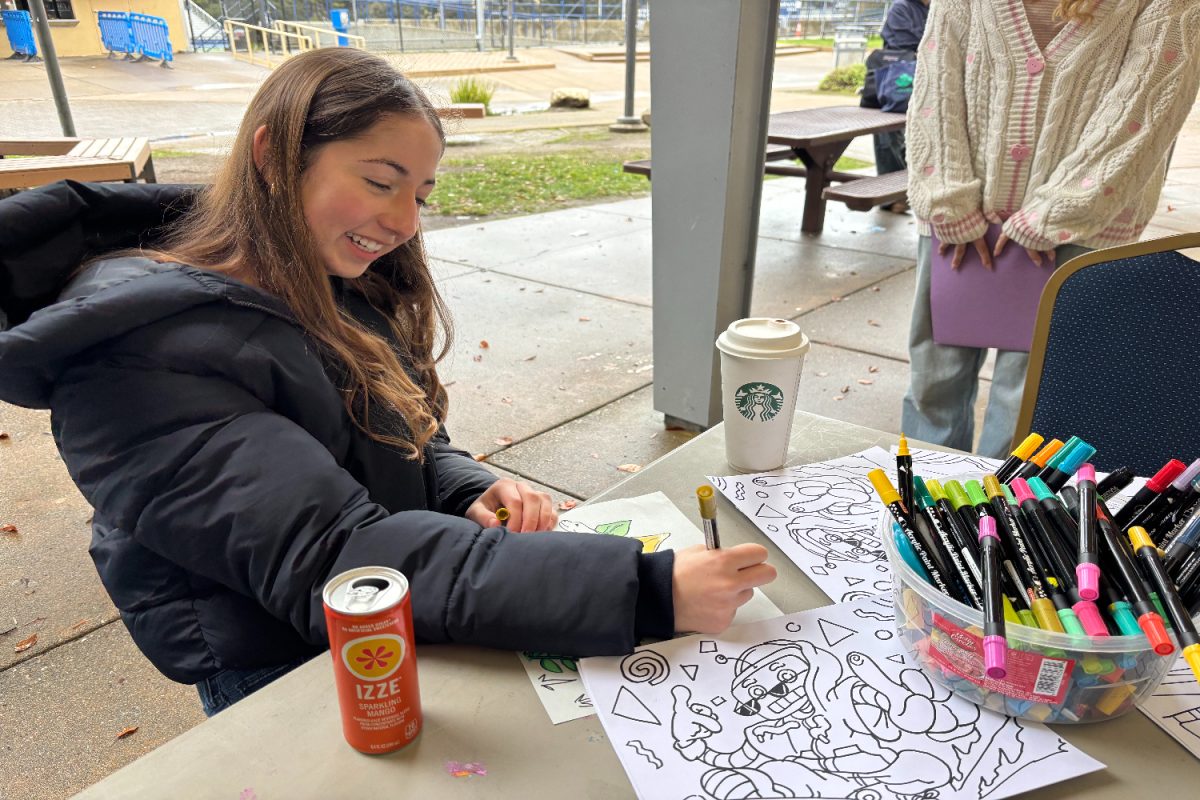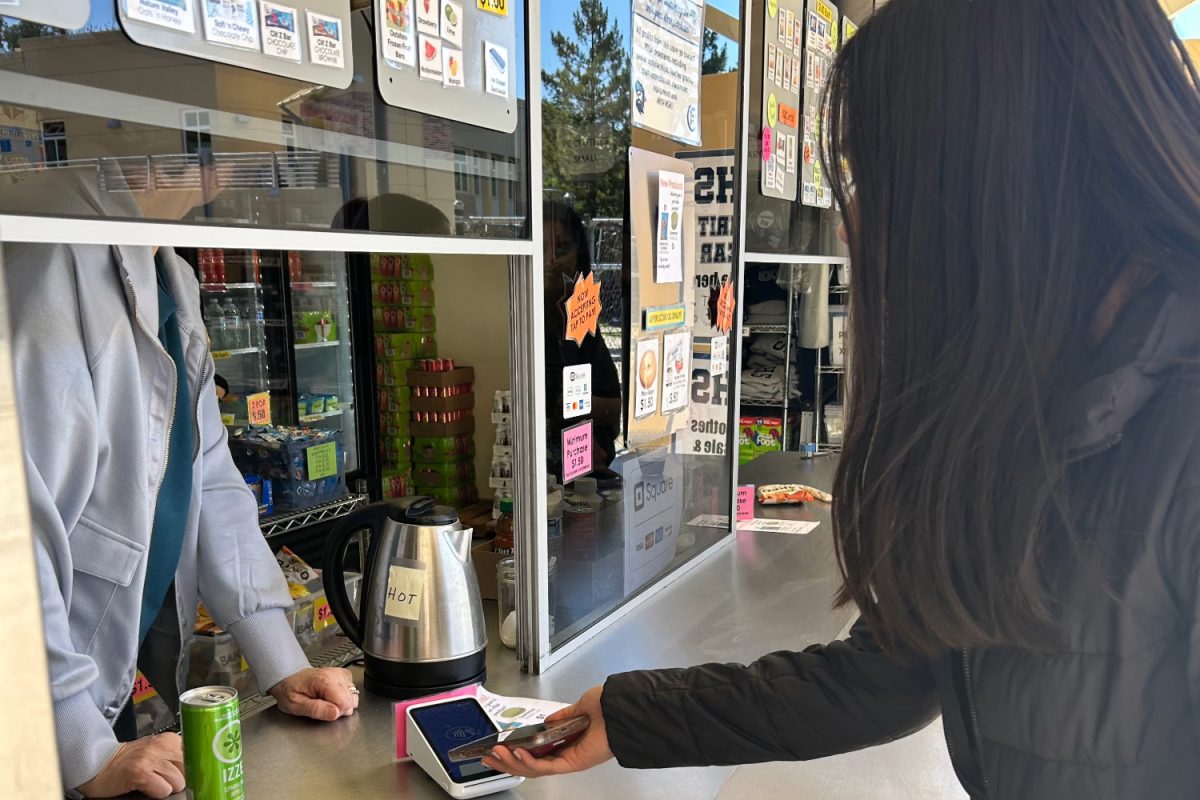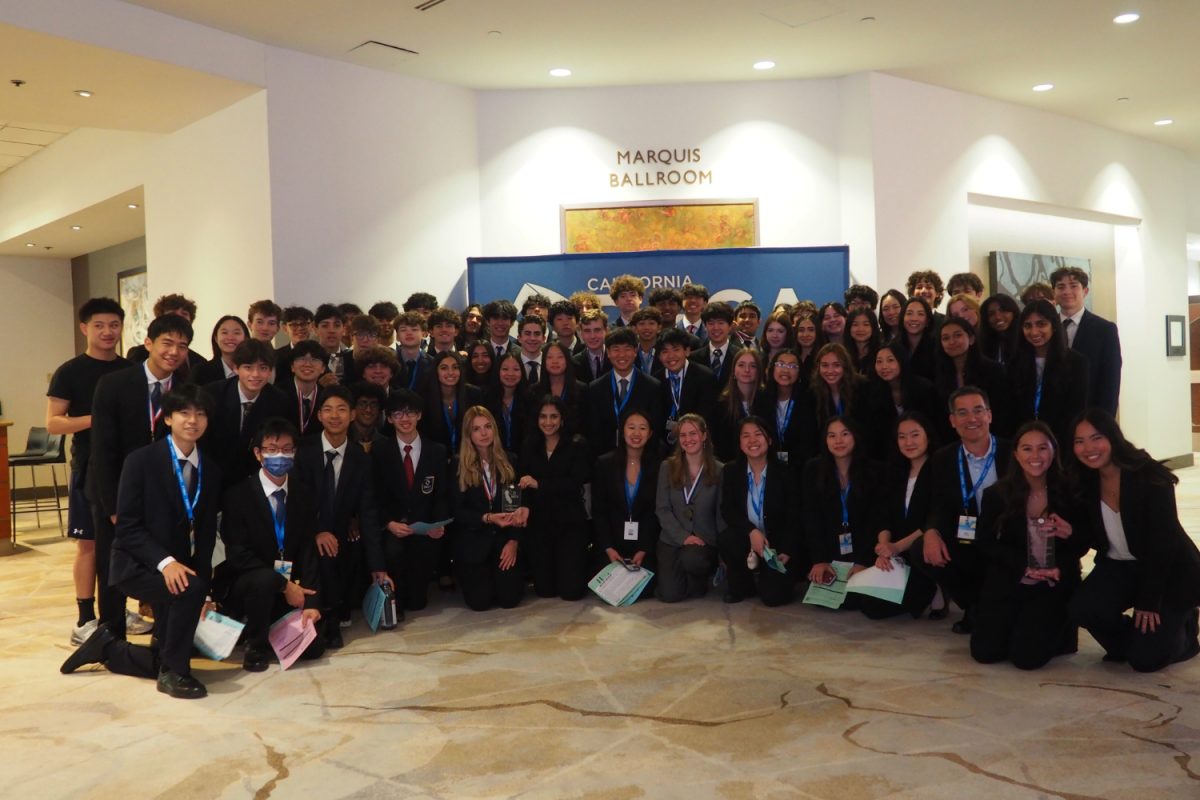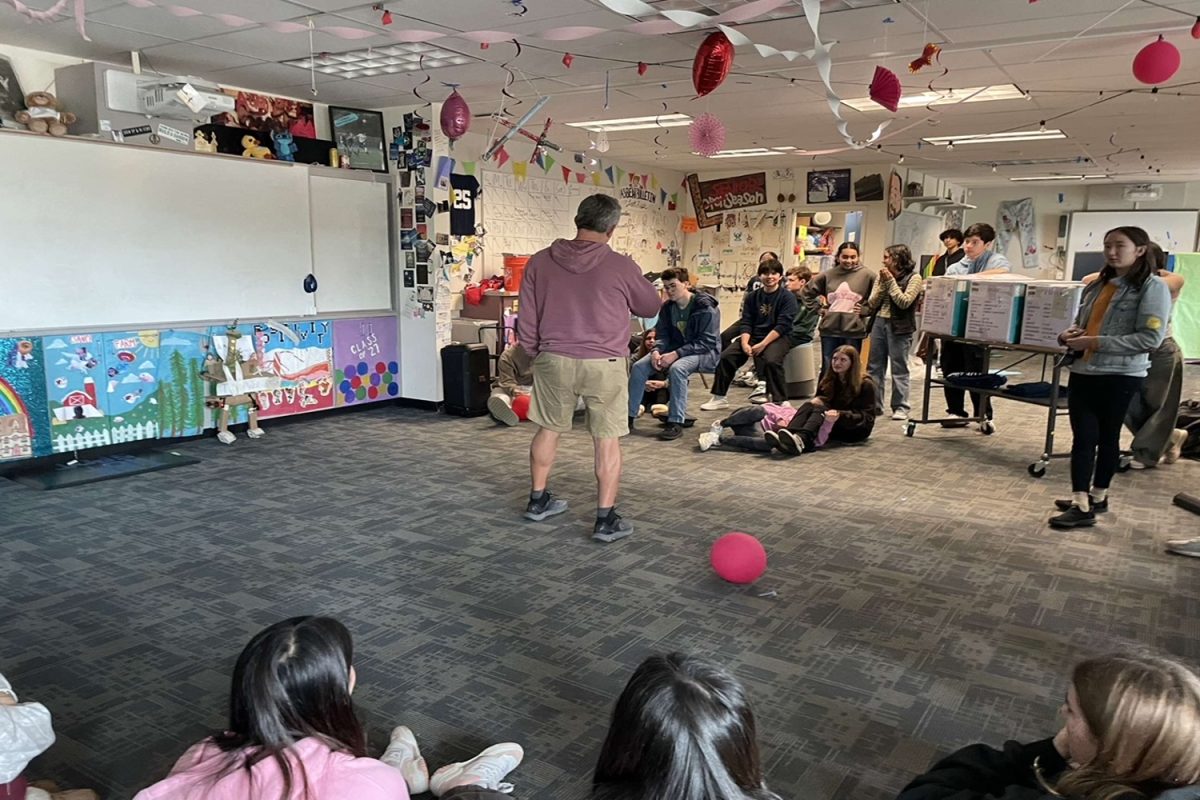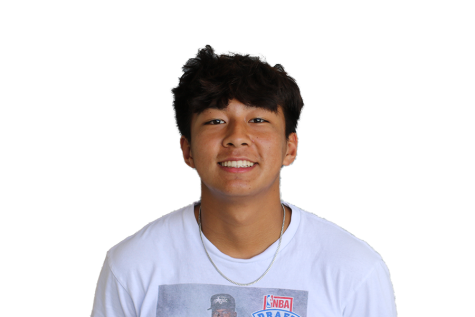As college application season creeps closer and anxiety continues to grow, students have found themselves amidst a crossfire between conflicting majors.
Like most high school students, Keya Arora, a junior at Carlmont High School, is unsure what she wants to pursue. With all of the interests she has developed over the years, it has become harder to narrow down on one specific major.
“The severity of this choice is truly daunting to me. It makes me anxious at times, especially as the college application season gets closer because I want to have a set direction for my future,” Arora said. “I’m hoping that doing things outside of school that I’m interested in will help me determine a good major.”
Like Arora, Anjali Mehta, a junior at Carlmont High School, also does not have a set major. To Mehta, literature and art are her passions and are what she truly wants to pursue. However, Mehta is also invested in psychology as it appeals to her as a more practical option.
“It’s hard to find a balance between something practical that you know will work out and something that you actually like to study and enjoy,” Mehta said.
Mehta and Arora aren’t alone. When choosing a major, many students experience internal conflicts when trying to decide between passion and practicality.
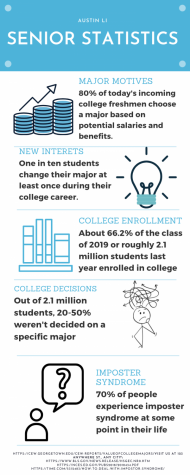 According to Georgetown’s ‘The Economic Value of College Majors’ report, 80% of today’s incoming college freshmen choose a major based on potential salaries and benefits. At the same time, however, experts encourage students to choose a major that reflects their personality and interests.
According to Georgetown’s ‘The Economic Value of College Majors’ report, 80% of today’s incoming college freshmen choose a major based on potential salaries and benefits. At the same time, however, experts encourage students to choose a major that reflects their personality and interests.
The rationale for this is that students are more likely to perform better when they are passionate and have a goal. If uninterested in what they are pursuing, students are more likely to burn out.
Studies show that one of the main reasons students dropped out of college was that they couldn’t remain interested in the subject matter they were learning or could not keep up with the curriculum. For many, this increases the stress of deciding on a major they can succeed in, leaving students uncertain about their paths.
According to surveys, of the 2.1 million students, 20-50% weren’t decided, and an estimated 75% are expected to change majors.
The reason for such rates partially stems from the imposter syndrome. The imposter syndrome is a psychological phenomenon that builds up anxiety and doubt, which results from undervaluing one’s self-competence.
According to an article written by TIME writer Abrigal Adams, 70% of people experience imposter syndrome at some point in their life. In particular, it is experienced quite often while applying for school and finding a career.
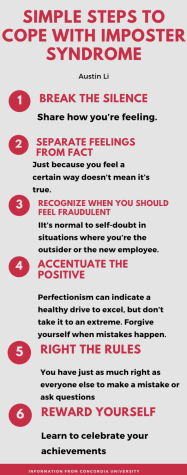 Despite this, some are still able to develop a plan and narrow down on a future major at some point. Adam Kalayjian, a senior at Carlmont, has been fortunate enough to cultivate an interest in computer science at an early age.
Despite this, some are still able to develop a plan and narrow down on a future major at some point. Adam Kalayjian, a senior at Carlmont, has been fortunate enough to cultivate an interest in computer science at an early age.
He dreams of studying artificial intelligence and has wanted to do so for five years. Having a plan, however, doesn’t necessarily diminish students’ anxiety levels.
Especially amidst the current pandemic, stress is as high as ever. Eric Wang, a Carlmont senior, is one of the many who is constantly flustered by the importance of college applications.
Wang has recently applied for early action at Duke University and hopes to major in Biology with a pre-med track. Although he is scared for what’s to come, Wang uses a more optimistic approach and takes inspiration from friends, family, and dreams he has been longing to achieve.
“I hate it. I really do. At the same time, however, I know it’s temporary, so I just push through. I’ve been getting stressed pretty often because of college apps, especially this year, where I feel like I’m less in control of things,” Wang said, “At the same time though, having people to talk to and help me is really good and keeps me motivated.”
Similar to Wang, other students have also created ways to cope with stress. Sebastián Ramírez Feune, a senior at Carlmont, recently applied to Harvard for early decision. He was able to do so because this past summer, Ramírez took it upon himself to plan for college application to reduce his overall stress.
“There are many elements to the college application process, and being organized is imperative to one’s ability to succeed in this competitive environment,” Ramírez said. “Starting this summer, I set a calendar with dates for early decision, regular decision, and scholarship due dates, as well as financial aid form deadlines.”
For some, planning for the future seems like too daunting a task. Students are often overcome with anxiety when determining something as severe as a major, as they feel that it will permanently shape their futures.
However, this isn’t the case. Throughout life, humans are subject to change. A career that at one point comes off as appealing may not be as time goes on. According to the U.S Department of Education, one in ten students change their major at least once during their college career.
“Coming out of high school, I really did think I had a plan. I wanted to major in economics to pave my way for a future job in consulting. However, during these months of quarantine, I began to rekindle my passion for music production, and my interests have gravitated towards becoming a music producer,” said Kevin Xiang, a junior at UC Berkeley. “I saw it as a blessing and a sign which made it easy to transition into a new career.”
Xiang’s experience switching up his major demonstrates that deciding on a strict path forward after high school isn’t always necessary. Despite having a set path after graduating, the discovery of new passions changed the course of his life for the better.
People are constantly evolving and are still figuring out who they are when they graduate. Though choosing a major can seem like a final decision that effectively sets the trajectory of students’ lives, it doesn’t have to be this way. As people change, so can their majors.



